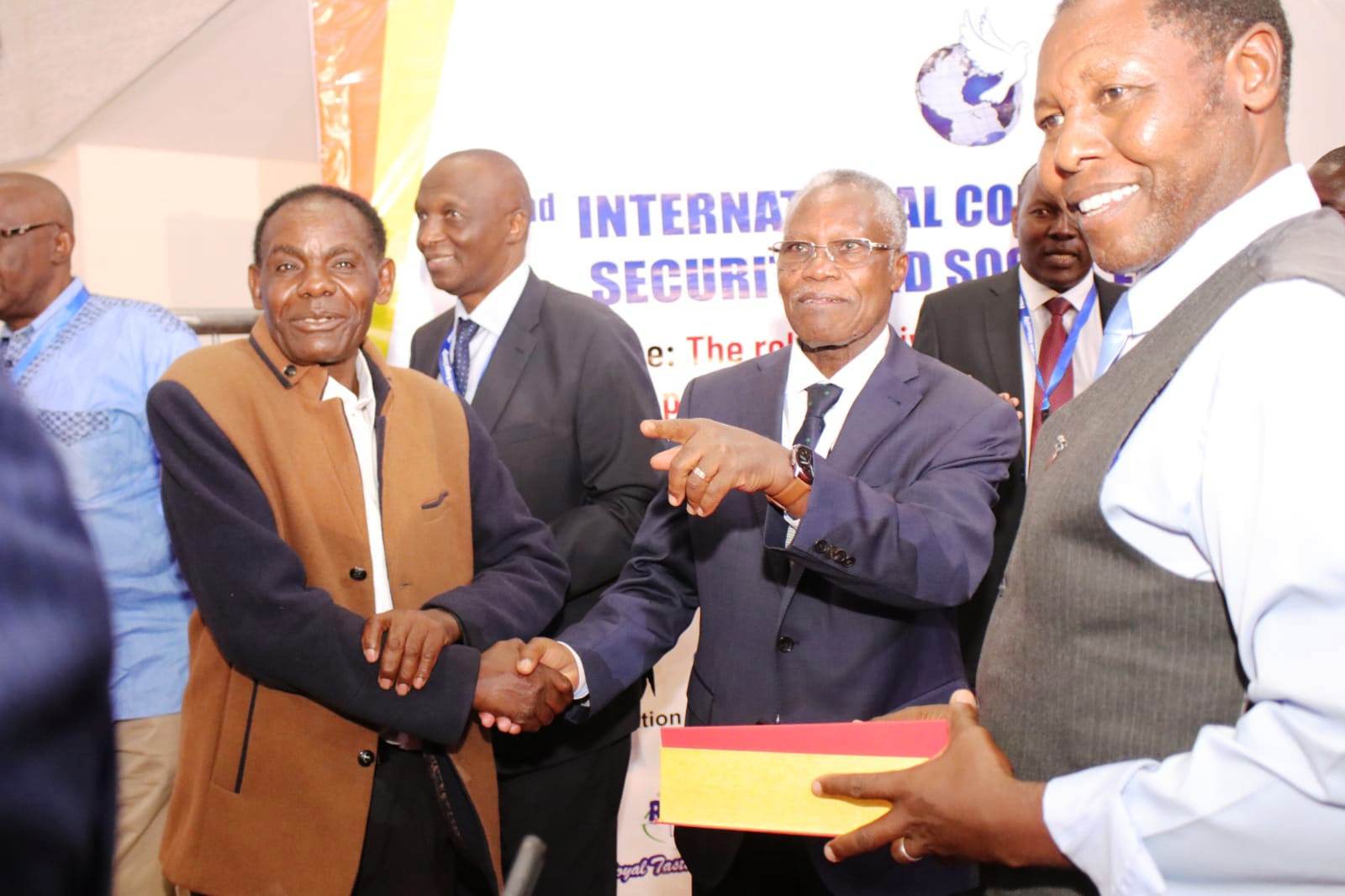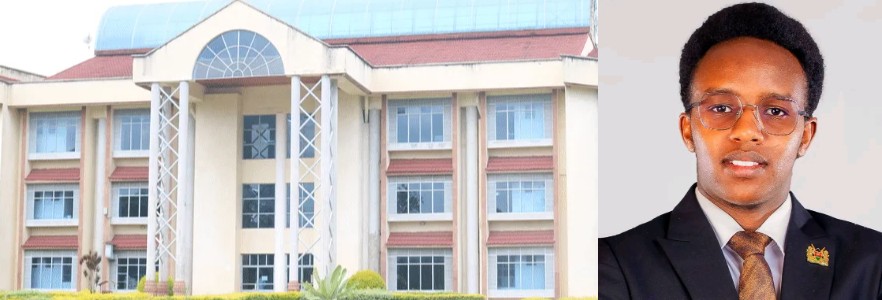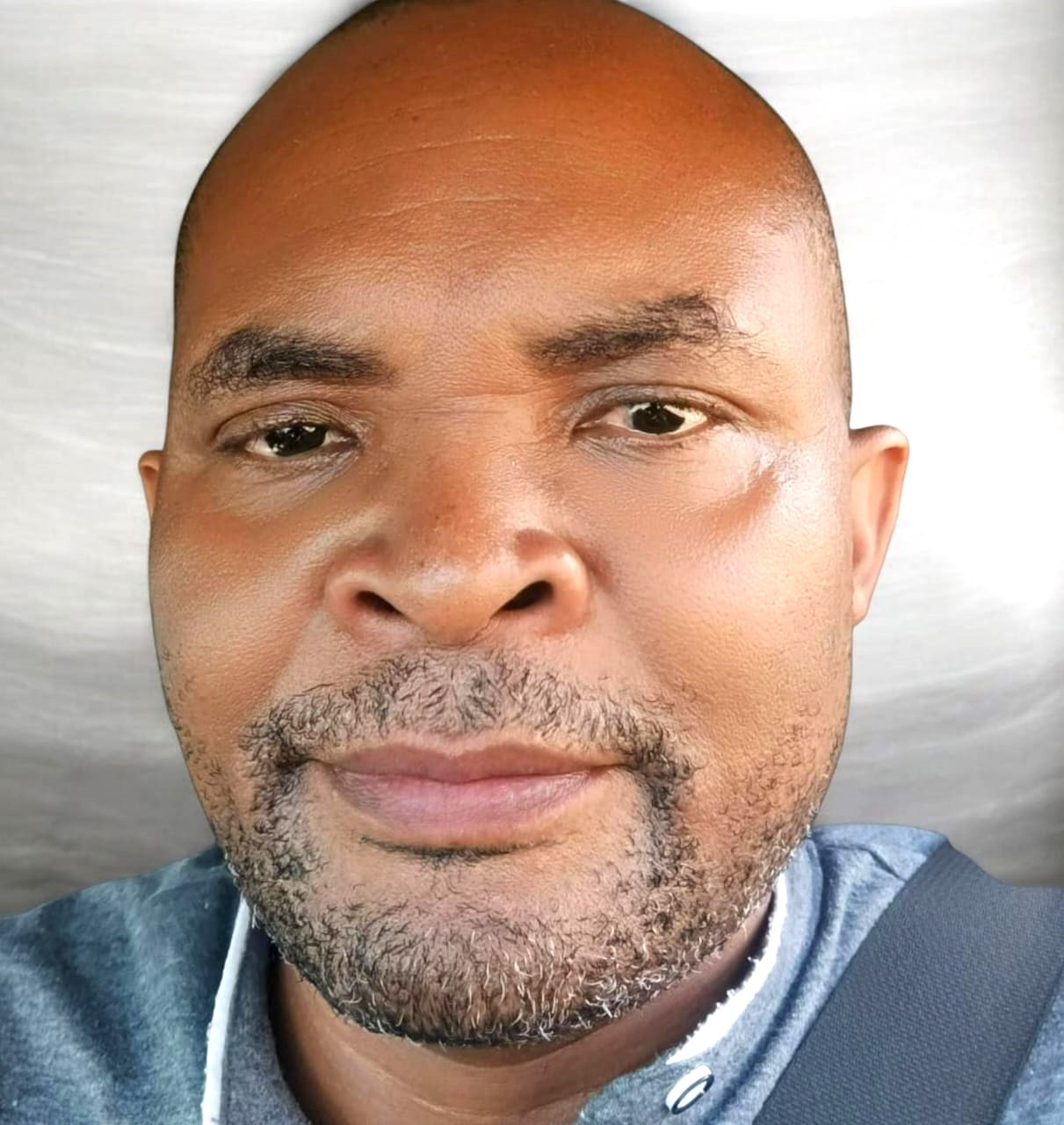By James Wakahiu
German institutions are offering hundreds of scholarships to Kenyan university students studying or seeking to study locally or in European institutions. The support is available for under graduate students, Masters Level as well as PhD scholars from the East African region, including refuges.
Application procedures and requirements are available online, but some of the organisations funding education have offices in Nairobi. These include the German Academic Exchange Service (DAAD), whose representation in Nairobi started as a small adjunct office in September 1973. By 1979, the small office had grown into a fully-fledged DAAD Regional Office for Africa (www.daad.or.ke).
“Come learn with us, and we can also fund you if you are needy and bright. Learn some German too,” was the underlying message from German institutions that made presentations at the Second International Conference on Peace, Security and Social Enterprise held at Mount Kenya University (MKU) in Thika town last week. Germany has a population 0f 83 million, of which 10 million are foreigners, including refugees.
There was rapt attention by about 1,000 delegates in person or online at the Mwai Kibaki Convention Centre as the directors of German institutions funding education in Africa – some already employing beneficiaries of scholarship programmes in their projects – rattled off impressive figures.
For instance, the Study Access Alliance has a scholarship programme for 100,000 high-quality online degrees at internationally accredited universities. “Our goal is to make university education accessible for everyone,” said Ms Laura Bake, Director Study Access Alliance, Germany
The Alliance offers a comprehensive programme – powered by its partners for full university scholarships for high-quality online Bachelor, Master and MBA degrees at Germany’s largest university. ‘With a focus on access for women, we offer students a support programme on digital learning methods, empowerment, entrepreneurship, career and soft skills and links to the job market,” said Ms Baker.
She said scholarships remove the pressure of having to worry about anything else other than learning. Some scholarships are prestigious and could help students acquire jobs faster due to their competitive nature. “Scholarships help facilitate exchange programs and international students. This provides access to information, equipment, and technology not readily available,” she added.
Prof Dr David Rempel, Academic Head at Nuremburg Campus, Germany, said the IU International University (IU) is Germany’s largest university with 80,000 students and the world’s largest online degree portfolio. “The entire online degree portfolio is eligible for scholarships. You can get the full experience at no cost for students – partners cover tuition,” he told the delegates.
The Leadership for Africa offers scholarships programme to complete a Master degree in Germany, in all fields of study (except for medicine, dentistry, law, arts and architecture) About 50 scholarships are issued yearly (with quotas for nationals/refugees).
Another Kenyan-German Postgraduate Training Programme offers 30 scholarships annually, open to all fields and topics. The 2010 cooperation agreement between the Kenyan Ministry of Higher Education, implemented by the NRF and the DAAD, renewed in 2017 and extended in 2021 for another three intakes. The program aims to achieve capacity building at universities in Kenya. Since the first intake in 2011 until today, 139 scholarships have been awarded in total, thereof 71 doctoral candidates have successfully completed their PhDs.
Established in 1960s, DAAD promotes creation of high-quality and permanently self-sufficient higher education structures in developing countries. It also contributes to academic collaboration within the region and offers individual scholarships for postgraduate students (Master and PhD levels).
DAAD is the world’s largest funding organization for international exchange. It is an independent organisation of German higher education institutions and their student bodies devoted to internationalising the academic system. And it is not the only one.
Germany has tens of internationally-accredited universities and technical colleges whose doors are open to African students. There are 400 state-recognised institutions of higher education offering more than 20,000 different study programmes. It offers more than 2,000 international programmes; 85 power cent of these programmes are taught in English.
There are currently about 2.8 million students in Germany, among them about 13 per cent international students. Of the foreign students, the rest of Europe provides the bulk with 43.7 percent; Asia 37.6; Africa 9.7 pc; the Americas 8.6 pc and the rest of the world 0.4pc.
The Mku Council Chairman, Prof David Serem, said the university would continue to fully support all activities that promote peace and education in the country, regionally and globally. “We are committed in fully supporting all activities geared in promoting peace and especially those involving youth. This is why most of our programmes are self-job creating oriented, “the chairman said.






